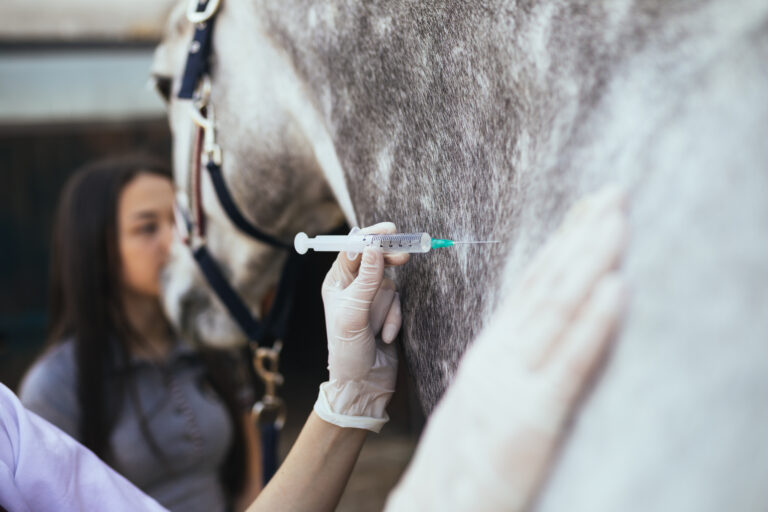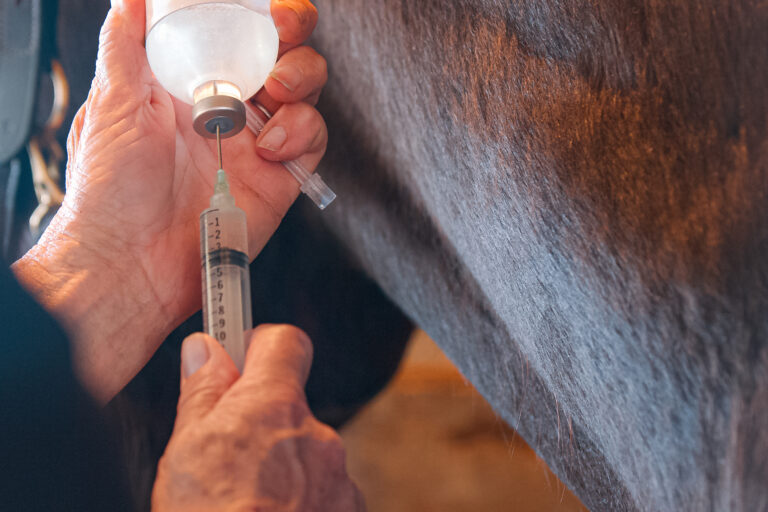
E.S. Rusty Ford, the Equine Operations Consultant for the Office of the Kentucky State Veterinarian released the following statement on Kentucky’s position on Parx Racing’s quarantine and the release of that quarantine as it related to import into Kentucky.
Background and Our Understanding
We did on January 11th become aware of a diagnosis of equine herpesvirus Type 1 (wild strain) being confirmed in a horse that had been removed from Parx Racing in Ben Salem, Pennsylvania, on January 8. The diagnosis was based on clinical evidence of disease and detectable EHV1 DNA by a PCR assay. The animal’s illness and associated diagnostics provided evidence that transmissible EHV-1 was prevalent on the backside and within the barn at the time the horse was removed on January 8. Testing of the horses having the greatest probability of exposure (i.e., those residing in the same barn as well as outrider and lead ponies) was not conducted, and our understanding is that the quarantine put in place by Parx Racing is scheduled to be released on January 30 if no new cases are reported.
Kentucky Position/Direction
In anticipation of the release on January 30, we have been conferring with our race tracks, horsemen and veterinarians regarding the undefined risk this population might pose. Lacking diagnostic testing to determine the extent of transmission to the exposed population, Kentucky State Veterinarian Dr. Robert Stout and I are of the shared opinion that, though the level of risk is unknown, we do feel that the risk is elevated. This determination is based on the fact that transmissible virus has circulated in the environment and is likely amplified in part by the extreme environmental factors that are decreasing exchange of fresh air into the barns.
Additionally, an inability to adequately isolate new arrivals on the grounds of our tracks does warrant an abundance of caution be taken to mitigate the identified risk.
With this being our opinion, we are directing our tracks and their associated training centers to not allow movement of horses which have resided or been at Parx (racing, training or transiting, etc.) in the preceding 30 days. Horses from Parx will be allowed to enter Kentucky and move to farms or private facilities where they can be isolated and further evaluated (which might include diagnostic testing) to potentially qualify for movement to a Kentucky track.
We will continue to monitor and report any developments as horses begin to depart Parx and are dispersed. Speaking with farms here in Kentucky that might potentially get Parx horses, I anticipate some will be tested and that could be helpful in defining what—if any—risk this population might pose.
This directive as currently set will remain in place through the week ending February 10th. Next week we will make a determination if the directive should be extended or allowed to expire as scheduled.

![[Aggregator] Downloaded image for imported item #19123](https://s3.amazonaws.com/wp-s3-equimanagement.com/wp-content/uploads/2025/12/22164801/GettyImages-825125882-1-scaled-1-768x512.jpg)
![[Aggregator] Downloaded image for imported item #18374](https://s3.amazonaws.com/wp-s3-equimanagement.com/wp-content/uploads/2025/09/30140012/EDCC-Unbranded-28-scaled-1-768x512.jpeg)

